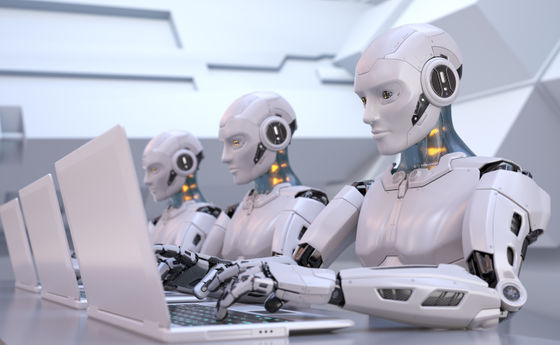Research results show that companies that have introduced AI and robots will rather increase employment

Most of the products that exist today involve artificial intelligence (AI) and robots in the manufacturing, quality control, and shipping processes, and we often hear the opinion that 'robots rob humans of employment.' Contrary to conventional wisdom, a new study by Professor Lin Wu of the University of Pennsylvania at Wharton found that 'the total employment of companies that have introduced robots will rather increase, and the total employment of companies that have not introduced robots will decrease.' Introducing robots will increase the number of unskilled workers and reduce the number of managers. '
The Robot Revolution: Managerial and Employment Consequences for Firms by Jay Dixon, Bryan Hong, Lynn Wu :: SSRN
Robots on the job: What's the real impact for their human counterparts? | Resoundingly Human Podcast
https://pubsonline.informs.org/do/10.1287/orms.2020.05.34p/full/
The Robot Revolution: Managerial and Employment Consequences for Firms | Mechanical and Aerospace Engineering
https://mae.osu.edu/events/2020/11/robot-revolution-managerial-and-employment-consequences-firms
Wu et al. Said the National Accounts Longitudinal Microdata File (NALMF), a data set of corporate employment and financial status based on tax filing data from 2000 to 2015 published by the Canadian Statistical Services Bureau. Based on large-scale statistical data such as the Workplace and Employee Survey (WES) , a cross-sectional survey on employee quality and employment status managed by the Business and Labor Market Analysis and Labor Statistics Departments of We analyzed the relationship between the introduction of robots and human employment.
As a result of the analysis, contrary to the conventional wisdom that 'robots rob human employment', in reality, the total employment of companies that introduced AI and robots tended to increase over time. On the other hand, it seems that companies that do not adopt AI and robots have a tendency to lose competitiveness and have to dismiss workers, and the introduction of AI and robots is 'a rival company's introduction. It is causing the phenomenon of 'depriving employment.'
In addition, the conventional wisdom was that 'robots deprive unskilled laborers of employment', but in reality it turned out that 'the employment of unskilled laborers would rather increase and the employment of managers would decrease'. I am. According to Professor Wu, this phenomenon is caused by AI and robots being able to manage workers' schedules and check work without mistakes, and Professor Wu said, 'Robots can accurately record the work they have done and also use numbers. There is no cheating and no management costs. '

Also, AI and robots will reduce the employment of middle-skilled workers with high school graduation qualifications or associate bachelors, but low-skilled workers without high school graduation qualifications and high-skilled workers with college graduation qualifications It has also become clear that demand will rather increase. 'Robots are not good at managing low-skilled workers involved in picking , packing, etc.,' said Professor Wu. While mentioning that the results for high-skilled workers are 'somewhat uncertain,' he speculates that 'the robots may be less effective because high-skilled workers can manage their work themselves.'
Professor Wu told companies that want to introduce AI and robots, 'We should introduce robots to improve the quality of products and services, not to save labor costs.' 'To make use of robots , The work process needs to be redesigned. ' He said that quality improvement is the best way to operate a robot, and commented, 'If you are aiming to save labor costs, you may be disappointed.'
Related Posts:







